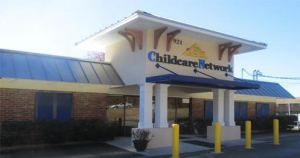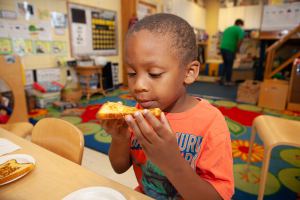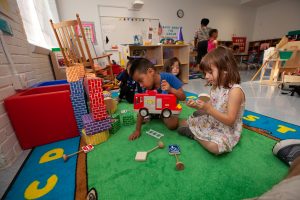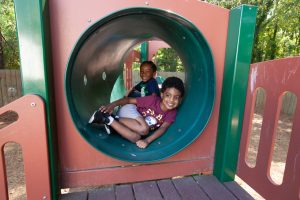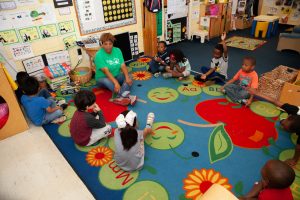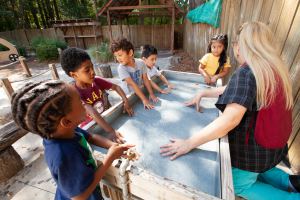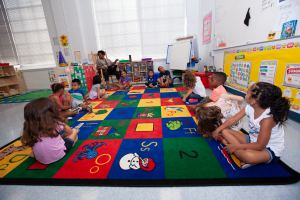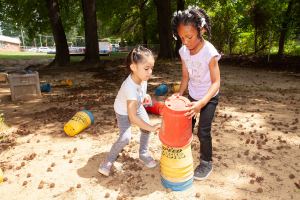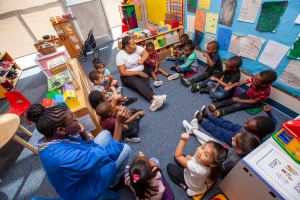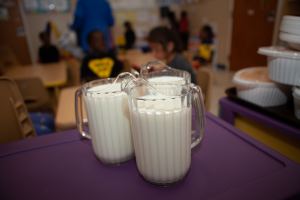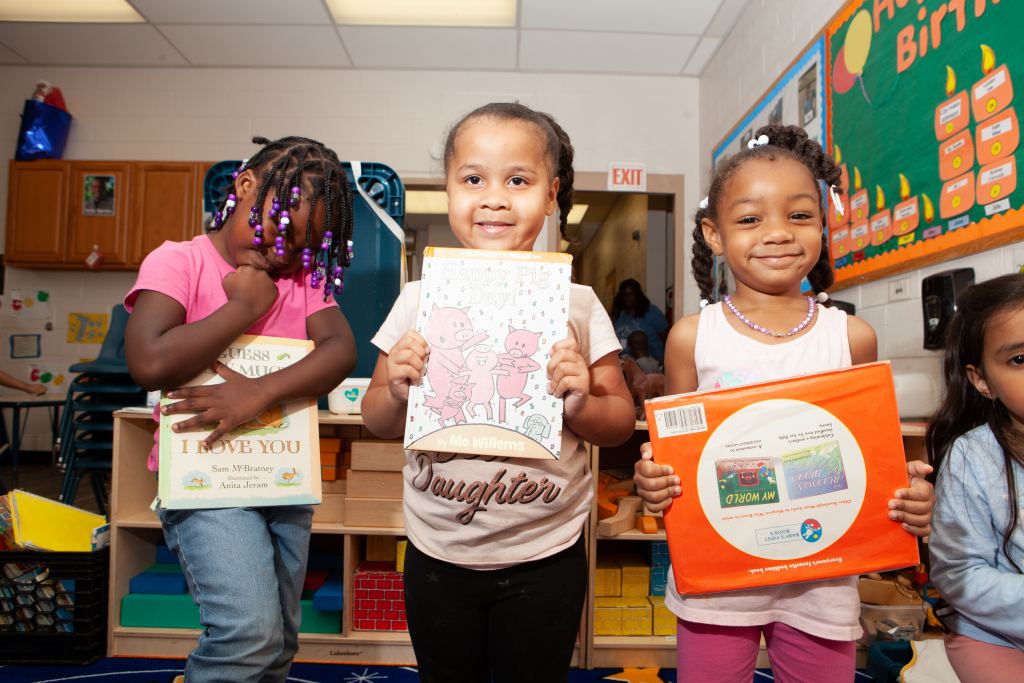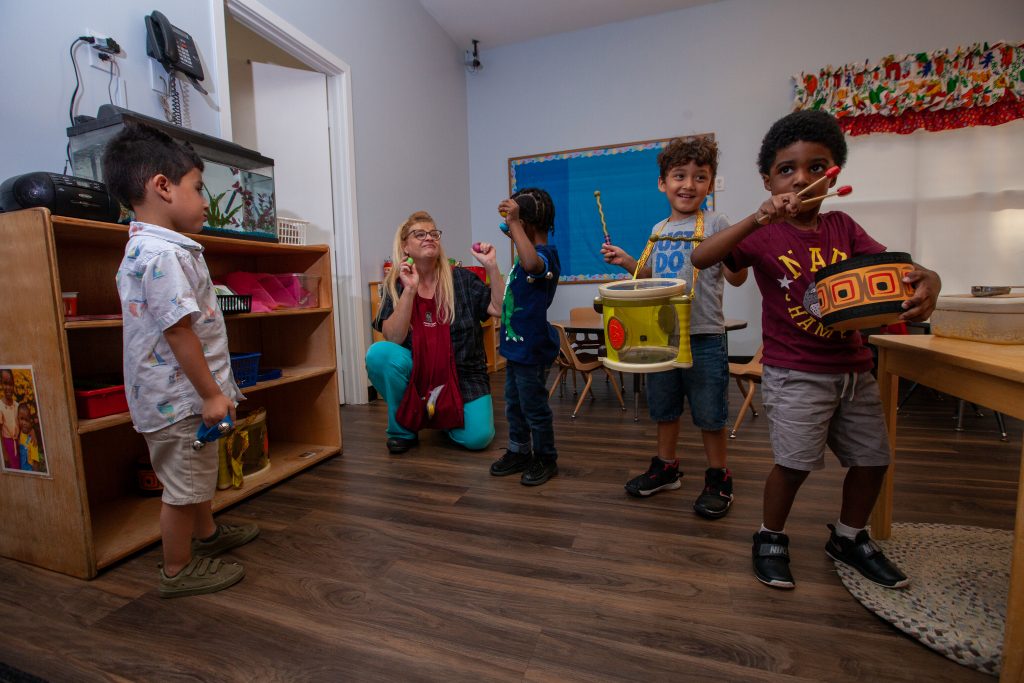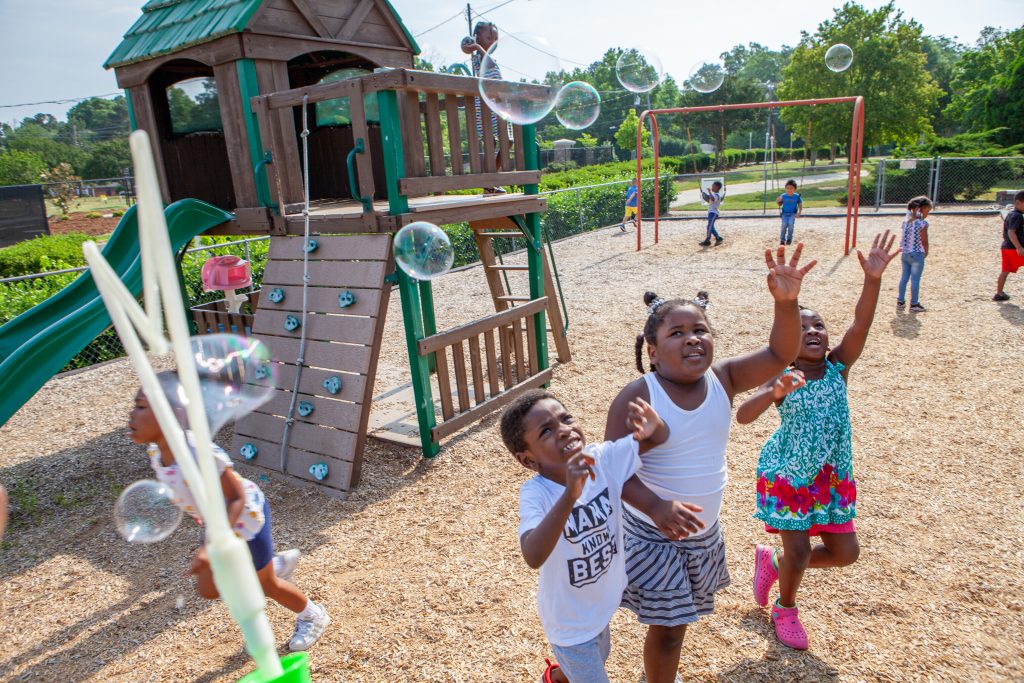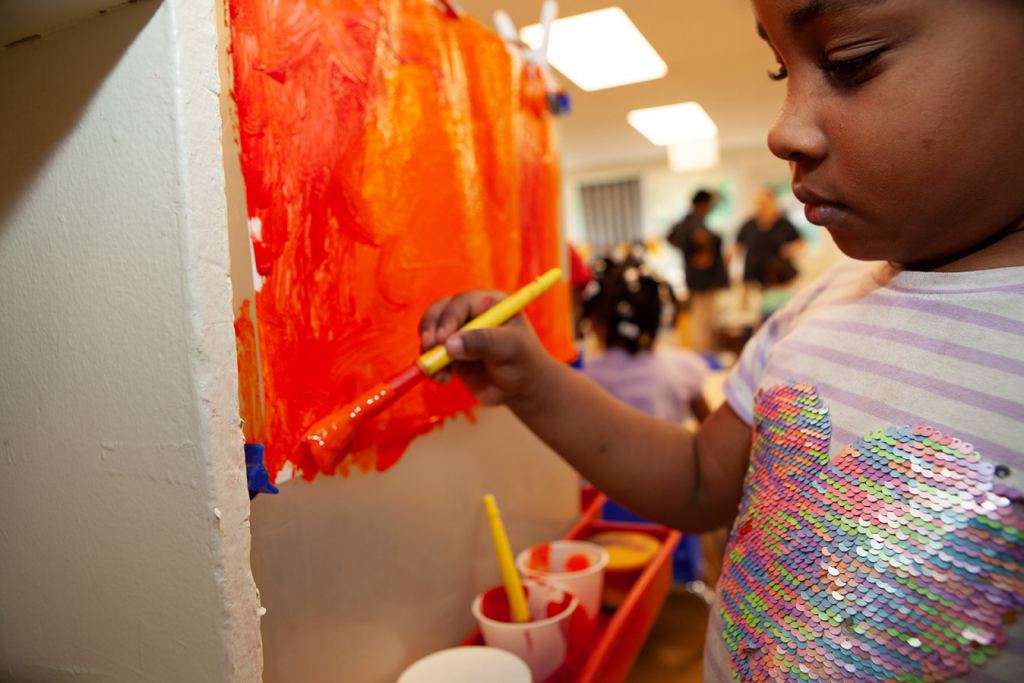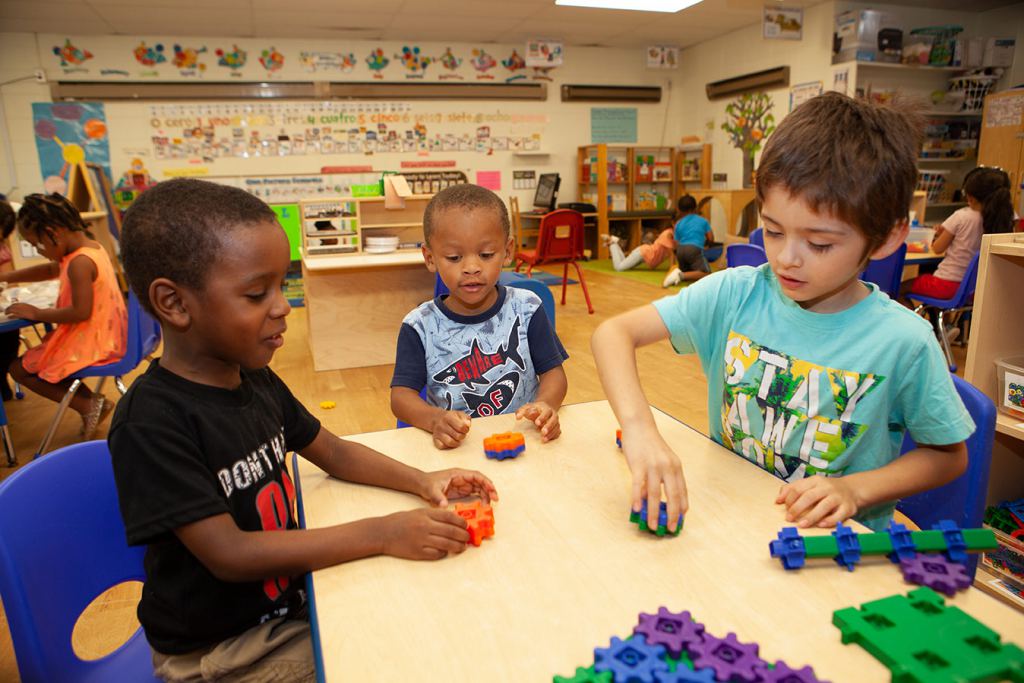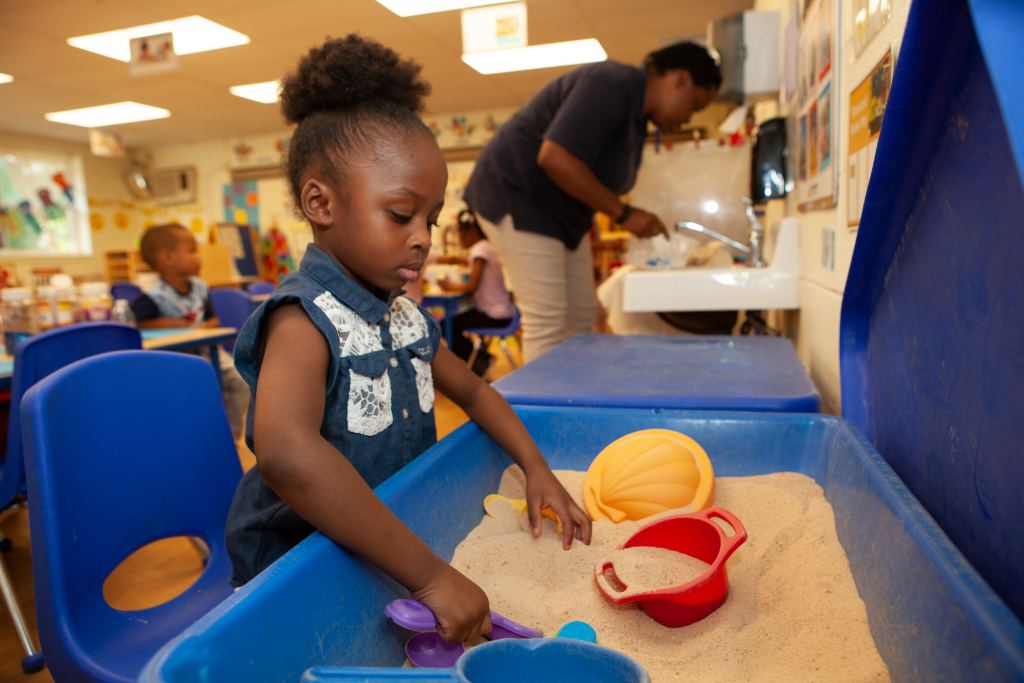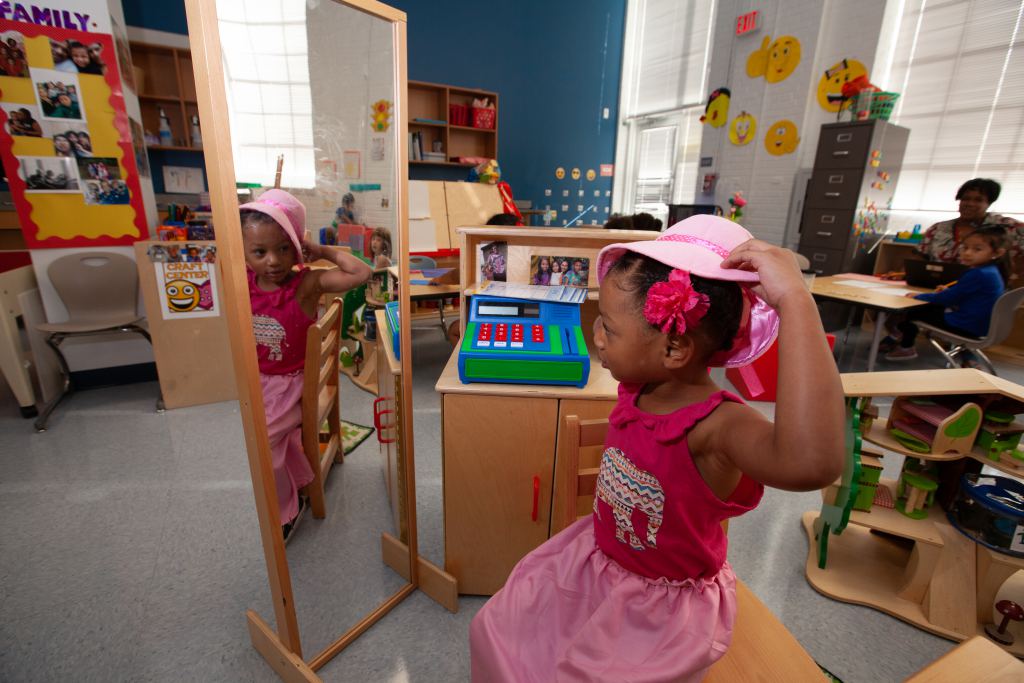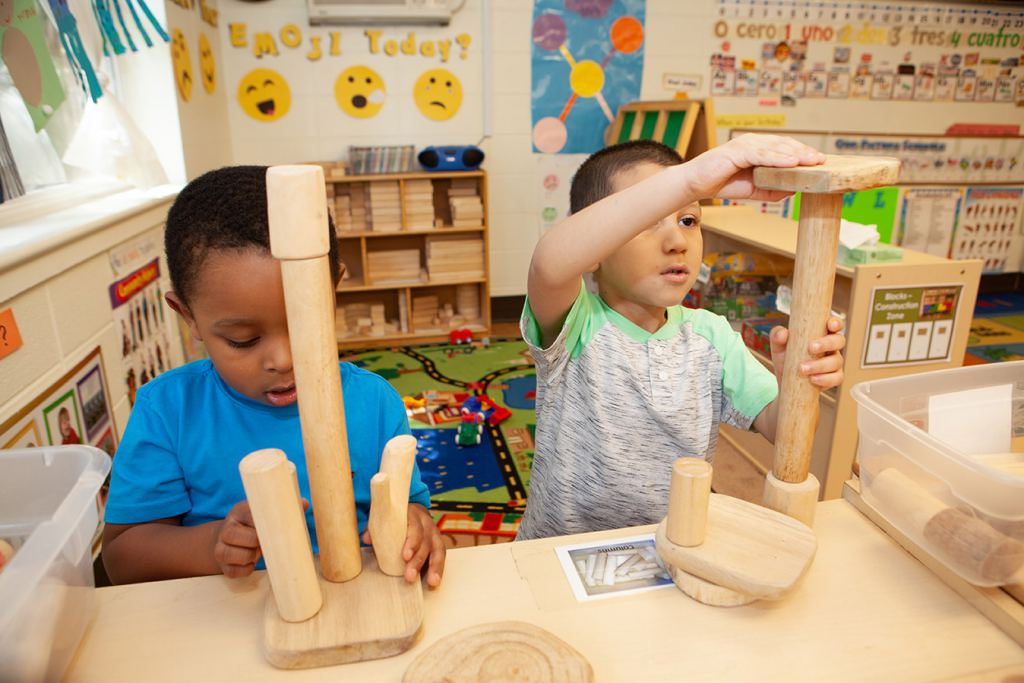Why Pre-K?
Early childhood education is a field with experts in child care and development from infant-toddler to second grade classrooms. Durham County local government is invested in and committed to providing equitable, high-quality pre-K experiences for all four-year-olds in Durham County. This page has information about the benefits of pre-K for children, families and the community, and what to expect when your child attends a Durham PreK site.
Informational Video
*Edit - Families and Communities Rising is the current administrator of Durham Head Start.
Enrollment Information
Infographic
Pre-K Skill Development
In pre-K classrooms, teachers use children's interests and ideas to create enjoyable learning activities (Play in the Early Years). When children are interested in the activity, they are more engaged, which creates more opportunities for learning.
| Skill Development | Why is this skill important? |
| Social Emotional Skills | Sharing/turn-taking/watching/listening |
| Routines & Self-Regulation | Children can focus their attention on learning when they have an expected schedule for the day. Pre-K teachers plan extra time for transitions between activities to allow children to clean-up and adjust to a new activity. This can develop skills that help children regulate their emotions, accept a change in plans, and express themselves. |
| Relationship Building | By the time children enter pre-K, some have been in child care or preschool for a few years while others are entering a classroom for the first time. It is important for all children to learn how to build relationships and trust adults outside of their family, and to build friendships with other children their age. |
| Becoming Independent | Teachers help children develop independence and self-confidence by letting them try new things and letting them make mistakes. Teachers also teach their students that making mistakes is okay and that they can learn from those mistakes. This teaches them that it's okay to be wrong sometimes and gives them the courage to try new things. |
| Foundation for Academic Learning in K-12 | The foundations of logic and reasoning, verbal language, vocabulary, comprehension, and scientific exploration come begin in pre-K classrooms through play and teacher-guided activities. (Examples below) |
| Vocabulary | Free choice stations that encourage imagination and play build children's vocabulary. Expressing their imaginative ideas allows children to teach each other new words, and teachers can introduce new words to explain concepts they're discovering during play. |
To learn more about the benefits of pre-K, click here.
Why Choose Durham PreK?
Durham PreK teachers, teacher assistants, directors and staff are all committed to providing a high-quality early childhood experience for each child.
Child care centers applied for Durham PreK and were chosen by a nonconflicting review committee based on high quality standards. The sites that were accepted into the program are held to high standards to maintain high-quality care.
Each Durham PreK site must:
- Be a 5-Star child care center
- Have lead teacher(s) with or working toward a Birth to Kindergarten License
- Receive weekly technical assistance (coaching, mentoring)
- Follow higher teacher compensation requirements
The Durham PreK Application is a joint application between Durham Public Schools, Durham Head Start, NC Pre-K, and Durham PreK. All sites in each of those programs are included in just one application. For a full list of sites, click here.
Typical Day in a Pre-K Classroom
Use the up and down arrows to move through the different activities.

Importance of Play
Research shows play-based learning is an effective way for children to learn, to prepare them for kindergarten and to develop their social-emotional skills. Play-based and child-centered instruction can also teach children to love learning.
What Does Play Look Like?
Sources and More Information
Play in the Early Years from the Bay Area Early Childhood Funders, May 2007
Comprehensive Research Review Finds Lasting Effects of Quality Early Childhood Education through High School from the American Educational Research Association
Untangling the Evidence on Preschool Effectiveness: Insights for Policymakers from the Learning Policy Institute
NC Pre-K | North Carolina Prekindergarten Program Guidelines from DCDEE
Child Care Quality from Early Years
